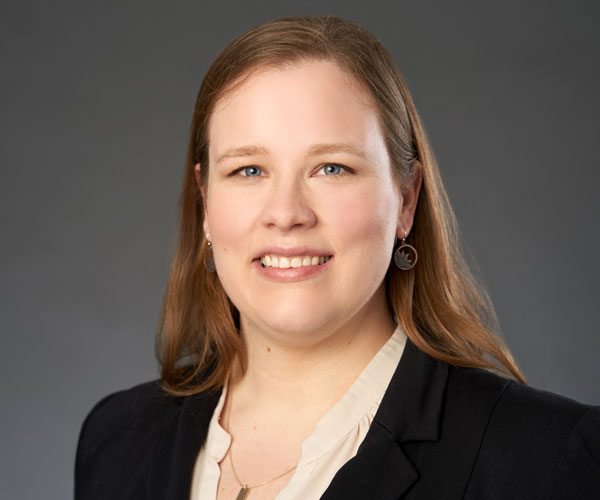Why Do We Do It: The Notice of Homeownership Counseling Availability and SCRA Disclosure
Written by Elizabeth M. Young LaBerge, Senior Regulatory Compliance Counsel, NAFCU
Sometimes it can be hard for a compliance officer to reverse engineer WHY his or her credit union is doing something. Is it required by regulation? State law? Established by policy? Or is it just a practice that was originally motivated by factors which are no longer in play?
Notating policies and procedures with the laws, regulations, guidance and internal decisions which inform the policy or procedure’s requirements can help a compliance officer’s future-self avoid these questions, and make it easier to implement regulatory and legal changes as they arrive.
As credit unions implemented the 2016 mortgage servicing rules over the past two years, there has been one requirement that many credit union compliance officers have been trying to reverse engineer: the requirement to provide the Notice of Homeownership Counseling Availability and the Servicemembers Civil Relief Act (SCRA) Disclosure.
It is easy to find discussion about the need to provide the Notice of Homeownership Counseling Availability (Form 9692) and the SCRA Disclosure (Form 92070). HUD’s website discusses how the notices must be provided to a mortgagee between the 32ndand 45thdays of delinquency. Section III.A.2.h.ix of the FHA Single Family Housing Policy Handbook 4000.1discusses them as default servicing requirements. There is a variety of discussion online about providing these forms. However, unfortunately, it is rather rare to find discussion of the requirement actually anchored in any law or regulation.
The Regulatory Requirement
Many credit unions email the Regulatory Compliance Team after scouring Regulation X or the SCRA trying to find out exactly where the requirement to provide one or both of these forms is located and which loans they apply to. However, the requirement to provide these notices is not required by the SCRA or any of NCUA’s or the BCFP’s regulations. The legal requirement can be found in HUD’s statutes at 12 U.S.C. §1701x(c)(5)(A):
“(A) Notification of availability of homeownership counseling
(i) RequirementExcept as provided in subparagraph (C)[where the borrower reinstates], the creditor of a loan (or proposed creditor) shall provide notice under clause (ii) to (I) any eligible homeowner who fails to pay any amount by the date the amount is due under a home loan, and (II) any applicant for a mortgage described in paragraph (4)[(c)(4) is the eligibility for counseling requirements, including that the homeowner is, or is expected to be, unable to make payments, or the HUD secretary determines the applicant is low- or moderate-income]
(ii) ContentNotification under this subparagraph shall—
(I) notify the homeowner or mortgage applicant of the availability of any homeownership counseling offered by the creditor(or proposed creditor);
(II) if provided to an eligible mortgage applicant, state that completion of a counseling program is required for insurance pursuant to section 203 of the National Housing Act [12 U.S.C. 1709];
(III) notify the homeowner or mortgage applicant of the availability of homeownership counseling provided by nonprofit organizations approved by the Secretary and experienced in the provision of homeownership counseling, or provide the toll-free telephone number described in subparagraph (D)(i);
(IV) notify the homeowner by a statement or notice, written in plain English by the Secretary of Housing and Urban Development, in consultation with the Secretary of Defense and the Secretary of the Treasury, explaining the mortgage and foreclosure rights of servicemembers, and the dependents of such servicemembers, under the Servicemembers Civil Relief Act (50 U.S.C. App. 501 et seq.) [now 50 U.S.C. 3901 et seq.], including the toll-free military one source number to call if servicemembers, or the dependents of such servicemembers, require further assistance; and
(V) notify the housing or mortgage applicant of the availability of mortgage software systems provided pursuant to subsection (g)(3).” 12 U.S.C. §1701x(c)(5)(A)(Emphasis and clarification added).
The statute allowed for HUD to establish regulations to implement these notices at application, but HUD has not yet done so. Currently, there is no legal obligation to provide them with an application.
The natural follow up question is which loans require these forms. The requirement applies when any “eligible homeowner” fails to pay an amount due under a “home loan” as defined by the rule. Paragraph 1701x(c)(6) contains definitions of a "eligible homeowner" and a "home loan":
"(B) The term ‘‘eligible homeowner’’ means a homeowner eligible for counseling under paragraph (4).
(C) The term ‘‘home loan’’ means a loan secured by a mortgage or lien on residential property.
(D) The term ‘‘homeowner’’ means a person who is obligated under a home loan." 12 U.S.C. §1701x(c)(6)(B)-(D)(Emphasis added).
Under paragraph (c)(4), a homeowner is eligible for counseling if the loan is secured by property that is the principal residence and the borrower is unable to make payments due to one of several listed circumstances such as involuntary loss or reduction in income, loss or reduction in income due to divorce or death, increase in basic expenses in connection with increased medical expenses, damage to property, etc. There is no requirement that the loan be FHA-insured, owned by FNMA or FHLMC or covered by HOEPA. However, there is specific language excepting USDA loans. Therefore, notices may be required for any loan secured by the principal residence of the borrower that otherwise meets the requirements of paragraph 1701x(c).


 Elizabeth M. Young LaBerge,
Elizabeth M. Young LaBerge,